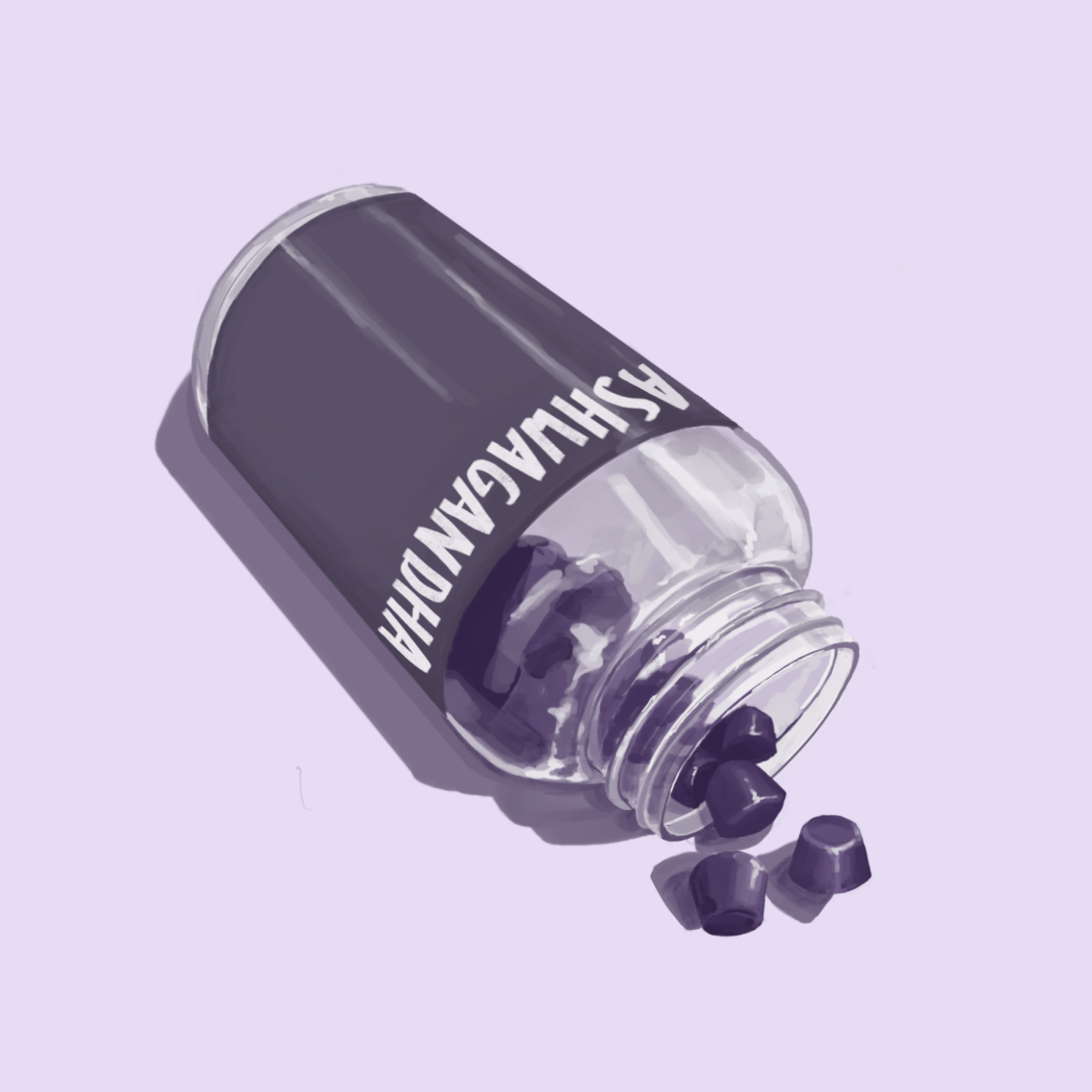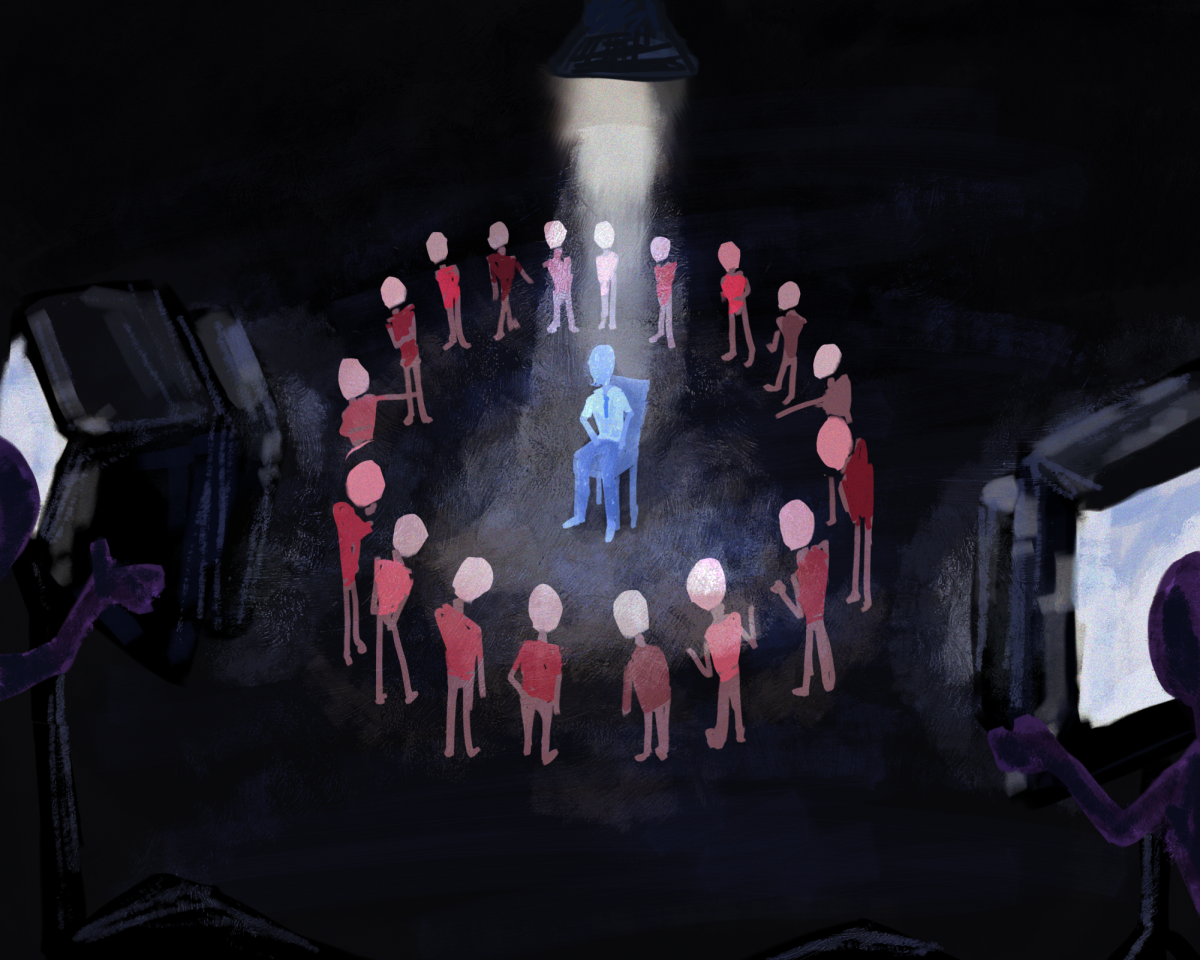Ashwagandha, a supplement meant to relieve stress, is the internet’s current wellness obsession. Over the past few months, people have increasingly marketed and popularized it on social media platforms like TikTok and Instagram as a quick fix for emotional numbness.
In South Asian society, people used ashwagandha as a sacred herb to improve inflammation, pain and anxiety. Today, the media in the West advertises it as a “chill pill” that can ease worries instantly. The ancient Indian medical system, Ayurveda, is based on writings that rely on a natural and holistic approach to health.
Ashwagandha is the latest perpetrator in the trend of repurposing traditional Eastern practices for Western consumerism. Once a staple of traditional Ayurvedic medicine, the herb is now popping up on shelves in every form imaginable. From gummies to pills to teas, Ashwagandha promises everything from quality sleep to weight loss. Some users have reported stress-relieving effects, while others feel emotionally blunted and depressed.
Several clinical trials have studied the success of ashwagandha for various health purposes, with different preparations and doses. However, the Food and Drug Administration (FDA) has not approved ashwagandha because it is a dietary supplement, and there is insufficient research regarding Ashwagandha’s effectiveness.
Market research predicts the Ashwagandha market will grow at an annual compound rate of 11.4% from 2022 to 2031, worth over $2.5 billion by 2031. The surge in monetary value reflects an increasing demand for natural remedies for common health concerns. Creatine, a natural source of energy made to supply muscles, saw a 120% market increase from 2021 to 2022 and will likely continue to grow even more from 2024 to 2030.
Though ashwagandha’s therapeutic effects can kick in within four to twelve weeks, online social media advertisements are quick to claim life-changing benefits after only a few weeks of taking the supplement. Placebo could explain the seemingly instant effects — when a person’s physical or mental health appears to improve after taking an inert substance. The mind tricks them into thinking the treatment is working, even if it isn’t.
Despite skepticism, there is some scientific evidence backing the benefits of ashwagandha. Some placebo comparison trials suggest ashwagandha can help with anxiety, improve sleep, enhance focus and boost physical performance by aiding muscle recovery. It can also raise testosterone levels, heighten lean body mass, cognition, cardiovascular function and more. With these benefits come some lesser-known side effects. Social media users need to understand the full effects of herbal supplements like Ashwagandha before putting them into their bodies.
It’s critical to understand that Ashwagandha is not a drug — it’s a vitamin, supplement and herb — and since the FDA does not regulate it, its production and dosage guidelines vary widely, increasing the risk of misuse. Taking more than the recommended dose won’t intensify its effects as many people claim online, and cycling — taking two to four week breaks every six to eight weeks — is recommended to help the body stay healthy and sensitive to the supplement. Continuous use of ashwagandha without cycling can lead to drowsiness, an upset stomach, diarrhea, hormonal imbalances, increased anxiety and sleep disturbances. Although marketing targets a wide range of individuals, Ashwagandha is not for everyone. For example, while one of its aims is to reduce cortisol, a stress hormone, individuals with already low cortisol levels may experience heightened anxiety, depression or a lack of motivation.
The surge in demand for Ashwagandha as a means to become calm or emotionally detached raises concerns about how consumers approach helping their mental health. Emotions, whether positive or negative, are part of being human. While Ashwagandha can be beneficial for managing stress, consumers should not take it as a way to suppress the human experience. Numbing yourself isn’t a mental health solution — learning how to navigate and cope with emotions instead of suppressing them with a commercialized supplement is crucial to mental well-being. Seeking an easier way to cope with mental health can be a slippery slope. A quick-fix mentality may prevent individuals from addressing underlying problems and seeking professional help, potentially leading to other consequences. Relying on supplements as a sole treatment for mental health concerns can delay proper diagnosis and treatment, and in some cases, may even act as a gateway to more harmful and addictive substances.
Consumers — especially teens — should be cautious and deeply research viral wellness trends and practices before indulging in the first “life-saving” supplement they see online. Instead of falling victim to the excitement of a new trend, they should avoid dealing with unexpected harmful side effects by seeking and utilizing professional medical advice. Ashwagandha, like many other supplements, has its place in health and wellness but is not a catch-all cure for emotional regulation.
















